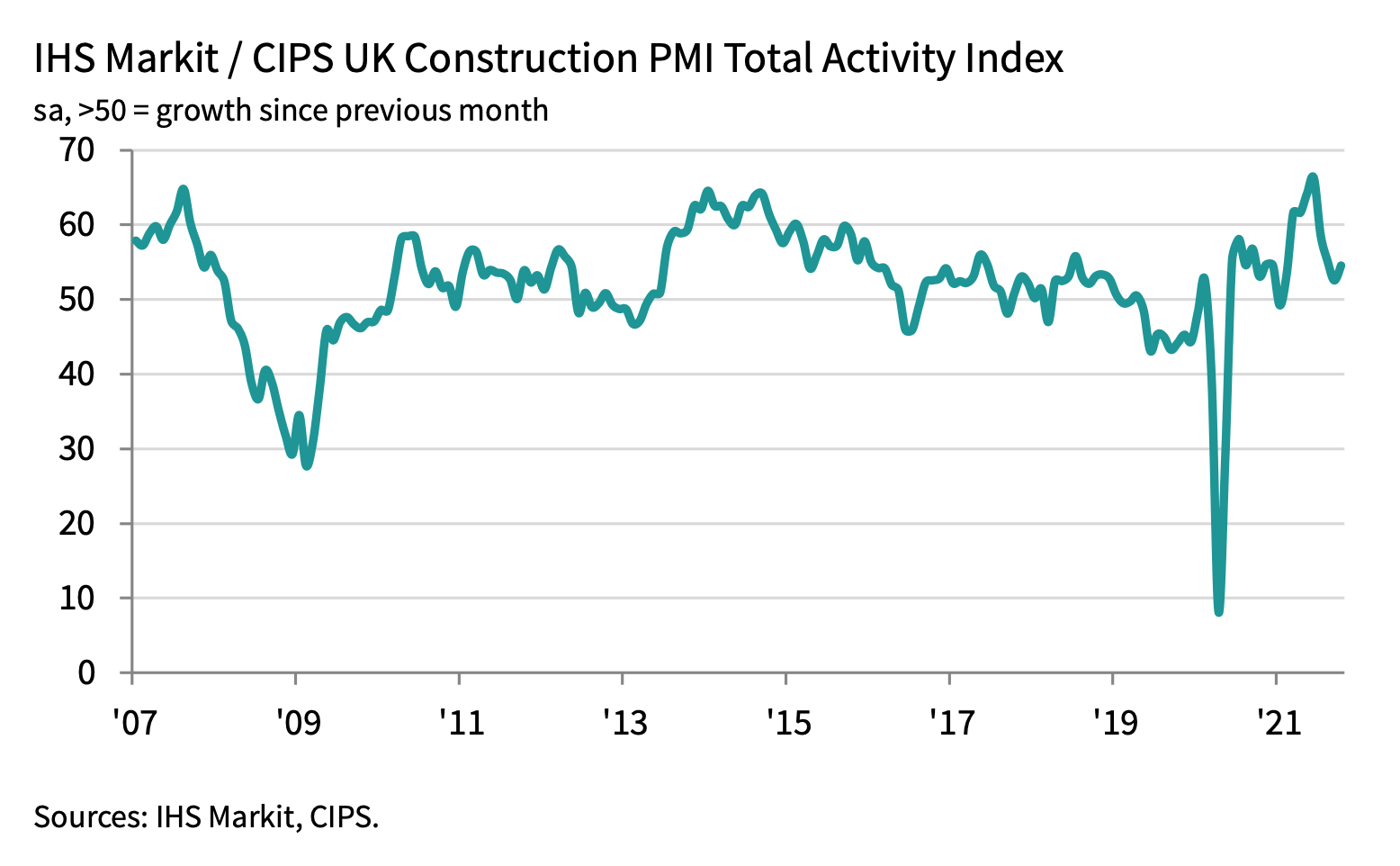
Construction business activity in October rebounded from September’s eight-month low despite shortages of staff and materials, according to the latest survey of construction buyers.
The headline HIS Markit/CIPS UK Construction PMI Total Activity Index registered 54.6 in October, up from 52.6 in September (where 50.0 indicates no change), to signal a rise in output volumes. The index has now posted a score above 50.0 for the last nine months, reaching a high of 66.3 in June.
Housebuilding (55.4) was the best-performing category of construction work in October, with its strongest increase for three months. Commercial construction (55.4) also expanded at a more rapid pace than in September, while civil engineering activity (51.4) increased only marginally in October.
New orders were unchanged from September’s eight-month low and weaker than the average seen in the summer. Construction companies reported strong demand from clients but some suggested short supplies and rising costs had obstructed contract negotiations.
More than half of the survey panel (54%) reported longer delivery times among suppliers in October, while only 2% saw an improvement. Delays were linked to haulage driver shortages and international shipping congestion. But the number of construction firms reporting longer wait times for supplier deliveries was down from 63% in September and a peak of 77% in June.
“The worst phase of the supply crunch may have passed, as the number of construction firms citing supplier delays fell to 54% in October, down from 63% in September.”
Meanwhile, around 73% of the survey panel reported an increase in purchase prices in October, attributed to rising energy and commodity prices, as well as raw material shortages and a lack of transport availability.
The near-term outlook for construction growth remained positive in October. Just over half (52%) forecast an increase in output during the year ahead, while 8% expected a decline.
Tim Moore, director at IHS Markit, said: “UK construction companies achieved a faster expansion of output volumes in October, despite headwinds from severe supply constraints and escalating costs. Housebuilding showed the most resilience, as signalled by the fastest rise in residential work for three months.
“However, the volatile price and supply environment added to business uncertainty and continued to impede contract negotiations. As a result, the overall rate of new order growth was unchanged from the eight-month low seen in September.
“There were widespread reports that shortages of materials and staff had disrupted work on site, while rising fuel and energy prices added to pressure on costs. Nonetheless, the worst phase of the supply crunch may have passed, as the number of construction firms citing supplier delays fell to 54% in October, down from 63% in September. Similarly, reports of rising purchasing costs continued to recede from the record highs seen this summer.”











